Photographs: Courtesy oriyaonline.com Harsh V Pant
The Maoist insurgency is a blatantly illegal and no-holds-barred war against the IndianState, against the idea and existence of Indian democracy, and that includes the poor tribals and farmers for whose cause the Maoists claim to fight. It is not only ignorant but also extremely dangerous to romanticise the Naxal cause, says Harsh V Pant
Finally, the Congress party is speaking in one voice. After sending mixed signals in the fight against Naxalism for years, the Congress has now been forced to come to terms with the reality that many had identified long back: that the Maoists are fighting a war to the finish with the Indian State. And unless the Indian State can credibly demonstrate its ability to stand up to the threat being posed by the Naxalites, it is by no means certain that the Maoists will lose.
The Maoists are not only targeting the nation's security forces but are going after innocent civilians and the political class.
For some time now, we have been hearing the Indian government talking of Naxalism and Maoism in grave terms, labeling them as the greatest internal security threat facing the nation. Yet the policy response has not been up to the mark.
It has been full of sound and fury signifying nothing. The United Progressive Alliance government in its first term failed to see the Naxalite threat for what it was -- one of the most significant challenges to the very existence of India. As a result its response was a mixture of denial, accommodation, and neglect.
...
Chidambaram's detractors were more interested in neutralising him
With the Left parties as coalition partners and an ineffective Shivraj Patil as the home minister, the government ended up worsening an already serious situation, giving ample opportunities to the Naxalites to demonstrate their might across an ever expanding swathe of territory called the 'Red Corridor'.
In the absence of leadership from New Delhi, the states decided to chart their own courses and their approaches ranged from offering amnesties to the raising of armed militias such as the Salwa Judum.
Realising that the situation has got out of control, the United Progressive Alliance government in its second term had no option but to take the threat head on as the then Home Minister P Chidambaram admitted in Parliament that the national security threat posed by the Maoists had been underestimated for the last few years. He launched Operation Green Hunt, the 100,000-troop-strong counter-offensive against the Maoists launched though it did not work as per the expectations of its planners.
Chidambaram's detractors were more interested in neutralising the home minister than in confronting the Maoists. Digvijaya Singh not only publicly questioned Chidambaram's approach in tackling Naxalism but also attacked him for not knowing the terrain of the area.
He openly demanded a rethink of the government's strategy of fighting Naxalism and accused Chidambaram of "intellectual arrogance." And his own remedy refused to move away from banalities: "We have to win over the people of the area..." One wonders where Digvijaya Singh is now when his party colleagues are now labeling the Naxalite attack on Congress party workers a "holocaust."
...
A multi-pronged strategy is needed to tackle Naxalism
The conventional wisdom on tackling Naxalism, much prevalent amidst the Indian liberal intelligentsia, suggests that this is a mere socio-economic problem. And only if we can provide jobs to the disaffected youth and win their hearts and minds, can we prevent Maoism from spreading.
This assumption is the basis for the developmental package that the government has announced for the Naxal-infested areas where significant development aid is now being channelled in the hope that this will help in alleviating the perception of alienation from the national mainstream.
It is true that good governance and economic growth have simply passed over certain parts of India, and the Naxalites thrive in this developmental and governance vacuum, often supplanting the state's legitimacy. And as the state's authority has eroded, the Maoists have moved in to fill this vacuum by erecting parallel structures of governance.
According to some estimates, the Maoist movement has nearly 40,000 permanent members and 100,000 additional militia members spread across 22 of India's 35 states and territories. They have established their own regimes that dispense justice, extort taxes and provide security. The insurgency of the Naxals is funded by extortion to the tune of Rs 14 billion each year.
Development, however, is never the goal of such movements. It is all about power. A multi-pronged strategy is needed to tackle Naxalism and one of the planks will have to be to ensure that the developmental aid trickles down to those at the very bottom of the nation's socio-economic ladder.
...
There is no substitute for good governance
Image: A villager begs a policeman to spare him after his arrest near Lalgarh, West BengalPhotographs: Jayanta Shaw/Reuters
But this should not mean that the military defeat of the Maoists should be put on the back-burner. For far too long there has been a complacent attitude towards fighting these forces. There has been an absurd sentimentality about the Maoists' leftist pretensions.
The argument went that these are idealistic, well-intentioned people who have gone awry, but soon they will recognise the benefits of participatory democracy and start engaging with the nation's electoral process. The Congress remains ambivalent about defeating Maoism and we keep hearing cliches suggesting that development is the only way to tackle the menace of Naxalism.
Only a dimwit would argue that development should not be a part of the solution, but development can only take place once the Maoists have been militarily neutralised. There can be no credible development programme when civilians and security personnel are getting killed day in and day out. The Maoists have no interest in development nor do those politicians who only talk about development to score partisan points. The tacit alliance of the Maoists with some political parties needs to be exposed.
There is no substitute for good governance. After failing to provide corruption-free governance for decades, sections of the political class have the gall to shed crocodile tears for those who have found it difficult to enjoy the fruits of India's economic development. The politicians who have been ruling the states where Naxalism is thriving are as culpable in the present travesty as those who are wielding the guns without any compunction.
...New Delhi needs to re-establish its authority
Image: Freed Italian tour guide Paolo Bosusco, who was taken hostage by the Naxalites in Odisha olast yearPhotographs: Reuters
Sections of the Indian intelligentsia continue to buy the arguments of the Maoists about the grievances that motivate the Maoist rank and file. This has led them to equate illegitimate Maoists actions with the actions of the legitimate State.
The indiscriminate nature of their killings and the brutality of their methods should be enough to convince anyone who chooses to see that the real aim of the Maoists is to establish a totalitarian state. For years, Naxals have been killing security personnel and civilians continuously and consistently with a ruthlessness that is unprecedented, but the Indian state has tended to look the other way while celebrity activists have tended to justify these acts on all sorts of moral grounds.
The Maoist insurgency is a blatantly illegal and no-holds-barred war against the Indian State, against the idea and existence of Indian democracy, and that includes the poor tribals and farmers for whose cause the Maoists claim to fight.
It is not only ignorant but also extremely dangerous to romanticise the Naxal cause. The main task of great urgency before the government today, therefore, is a military defeat of the anti-democratic Naxal forces. New Delhi needs to re-establish its authority, creating conditions for pursuing an inclusive political process and developmental agenda.

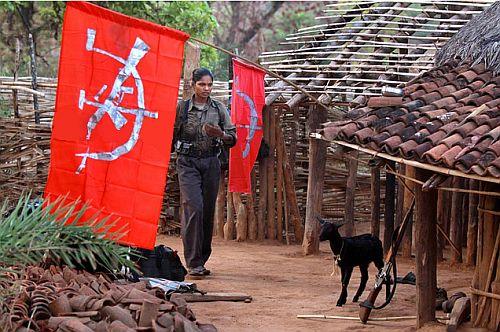
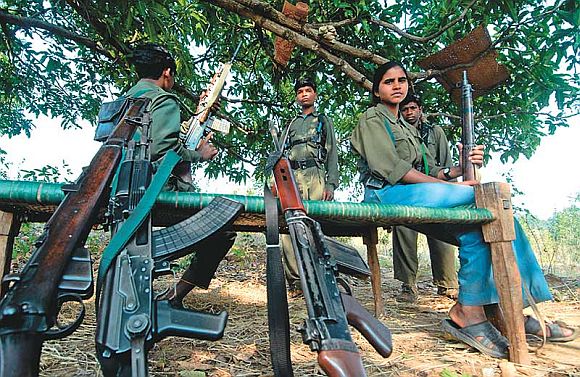
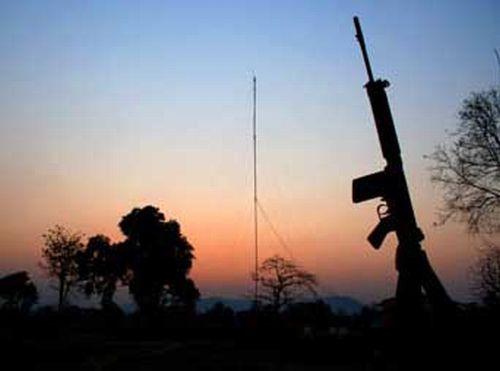
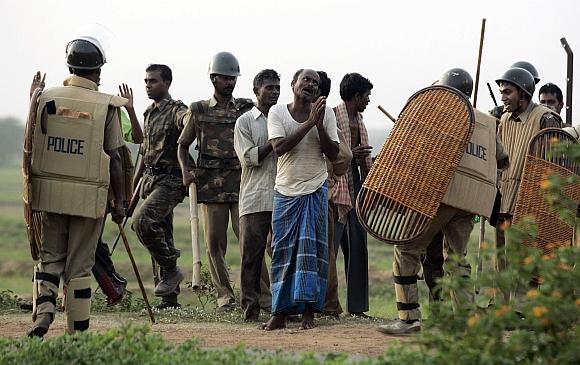
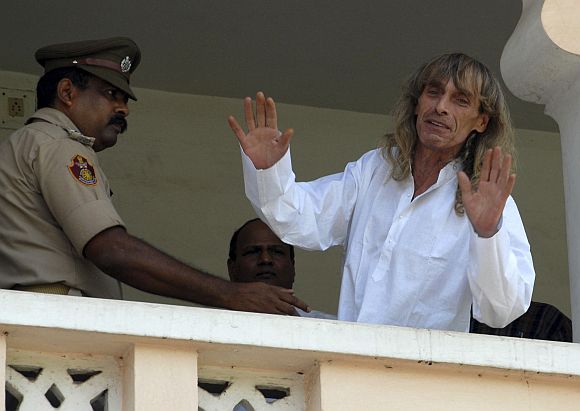
article